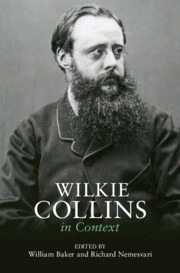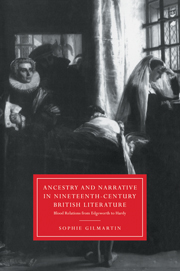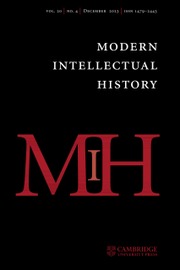Atonement and Self-Sacrifice in Nineteenth-Century Narrative
£30.99
Part of Cambridge Studies in Nineteenth-Century Literature and Culture
- Author: Jan-Melissa Schramm, University of Cambridge
- Date Published: March 2015
- availability: Available
- format: Paperback
- isbn: 9781107507609
£
30.99
Paperback
Other available formats:
Hardback, eBook
Looking for an inspection copy?
This title is not currently available on inspection
-
Jan-Melissa Schramm explores the conflicted attitude of the Victorian novel to sacrifice, and the act of substitution on which it depends. The Christian idea of redemption celebrated the suffering of the innocent: to embrace a life of metaphorical self-sacrifice was to follow in the footsteps of Christ's literal Passion. Moreover, the ethical agenda of fiction relied on the expansion of sympathy which imaginative substitution was seen to encourage. But Victorian criminal law sought to calibrate punishment and culpability as it repudiated archaic models of sacrifice that scapegoated the innocent. The tension between these models is registered creatively in the fiction of novelists such as Dickens, Gaskell and Eliot, at a time when acts of Chartist protest, national sacrifices made during the Crimean War, and the extension of the franchise combined to call into question what it means for one man to 'stand for', and perhaps even 'die for', another.
Read more- The fiction of the mid-Victorian period is placed in a new relation to legal and theological debate
- Victorian theology is explored alongside novels and a variety of legal texts
- Readers can see how literature of the time, such as the work of Dickens, affected the law-making of the period
Reviews & endorsements
'Schramm's work is a significant work for Victorian scholars and all who wish to understand more clearly the political, legal and theological ferment of the nineteenth century and how that is reflected in attitudes to sacrifice and substitution in the Victorian novel.' Peter Stiles, The Glass
Customer reviews
Not yet reviewed
Be the first to review
Review was not posted due to profanity
×Product details
- Date Published: March 2015
- format: Paperback
- isbn: 9781107507609
- length: 310 pages
- dimensions: 228 x 151 x 18 mm
- weight: 0.444kg
- availability: Available
Table of Contents
Introduction: (unmerited) suffering and the uses of adversity in Victorian public discourse
1. 'It is expedient that one man should die for the people': sympathy and substitution on the scaffold
2. 'Fortune takes the place of guilt': narrative reversals and the literary afterlives of Eugene Aram
3. 'Standing for' the people: Charles Dickens, Elizabeth Gaskell and professional oratory in 1848
4. Sacrifice and the sufferings of the substitute: Dickens and the atonement controversy of the 1850s
5. Substitution and imposture: George Eliot, Anthony Trollope and fictions of usurpation
Conclusion: innocence, sacrifice, and wrongful accusation in Victorian fiction.
Sorry, this resource is locked
Please register or sign in to request access. If you are having problems accessing these resources please email [email protected]
Register Sign in» Proceed
You are now leaving the Cambridge University Press website. Your eBook purchase and download will be completed by our partner www.ebooks.com. Please see the permission section of the www.ebooks.com catalogue page for details of the print & copy limits on our eBooks.
Continue ×Are you sure you want to delete your account?
This cannot be undone.
Thank you for your feedback which will help us improve our service.
If you requested a response, we will make sure to get back to you shortly.
×








